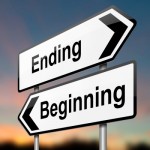 Have you heard the adage, it's not what you say, it's how you say it?
Have you heard the adage, it's not what you say, it's how you say it?
Yes, not all presentations are created equal.
It used to be public speaking was not for everyone but in today's world, if you don't have presentation skills, you will get left behind!
Here are a few tips on how to keep your audience alert, engaged and hungry for more.
1. Giving any talk is about the audience, not you. Your job is to build trust and rapport, quickly. Too often I see speakers "talk" at the audience. Before you get up to present, know thy audience. I always ask the venue where I'm speaking for a list of participants. I like scanning to see who I might know is there and knowing the skill level of the professionals in the room.
2. Kill PowerPoint: how 1990s!? Powerpoint is the most overused tool. Whenever possible I try to kill slides or have a handful of visuals or videos. It's amazing how much of a crutch PowerPoint is for people. Ditching it makes you think about what's important and you leverage other ways to engage the audience. If you must have slides, try something new like Prezi or at least use engaging visuals and few words. Haiku deck is a another simple tool.
3. Less is more. Speak less and  allow for more question time. A good rule of thumb is speak about 30-45 minutes for a 60 minute slot and allow for questions. If you are engaging and the content is good, you'll have them asking lots of questions! PACE yourself and your content. Practice. If you end early, relax! People love to have a little extra time in their day.
allow for more question time. A good rule of thumb is speak about 30-45 minutes for a 60 minute slot and allow for questions. If you are engaging and the content is good, you'll have them asking lots of questions! PACE yourself and your content. Practice. If you end early, relax! People love to have a little extra time in their day.
4. Study the greats. If you want to up your game in public speaking, find great speakers and study their techniques. I admire Ronald Reagan and Bill Clinton's style. They both knew how to make an audience laugh yet deliver a message. Mark Sandborn and Alison Levine are two of my favorites as well as a host of TED speakers. Watching what good looks like can really give you ideas on how to fine tune your skills or try new things. When I'm invited to speak at conferences or events, I always stay to catch learnings from other speakers.
What advice as a speaker do you have? What are some of your needs as an audience member? Do you use any tools or have any tips you have for making great presentation materials? Who are some of your favorite speakers?
This is the last post as a part of the ABC series.

